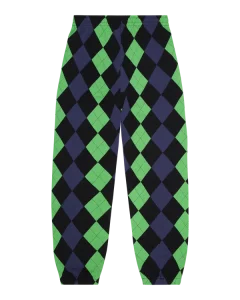In an era where fashion is often consumed for aesthetics alone, Denim Tears dares to stand apart. This unique streetwear label, founded by Tremaine Emory, isn’t just about what you wear—it’s about why you wear it. Denim Tears has become a cultural force by using fashion as a platform to tell stories that are often ignored, buried, or misrepresented in Denim Tears American history. Through bold design choices and historical references, the brand redefines American fashion by centering storytelling as its core philosophy.
The Genesis of Denim Tears
Denim Tears emerged in 2019, launched by Tremaine Emory after years of being a behind-the-scenes creative force in the fashion industry. Emory, who has worked with notable names like Kanye West, Frank Ocean, and Virgil Abloh, brought a fresh and conscious perspective to the fashion landscape. What makes Denim Tears remarkable is not just its style, but its soul. From the outset, Emory set out to make clothing that speaks, clothing that represents, and clothing that remembers. The label’s debut collection, centered on the legacy of slavery in America, was a bold and necessary step in reminding the world that fashion can be political, historical, and deeply personal.
A Canvas for Historical Narrative
Denim Tears is not a typical fashion label. Each piece is designed to reflect chapters of Black history in America. The brand’s most iconic item—jeans emblazoned with a floral cotton wreath—serves as a stark reminder of the cotton fields that were central to the American economy and to the suffering of enslaved Black people. By integrating cotton imagery in such a prominent and artistic way, Emory transforms a symbol of exploitation into one of resilience and remembrance.
This level of intentional storytelling is rare in streetwear. Every Denim Tears collection can be viewed as a curated exhibit, where garments are more than items to wear—they are archives of cultural identity. Whether referencing Pan-Africanism, the Great Migration, or the Harlem Renaissance, the brand brings the past into the present with both style and purpose.
Streetwear as a Medium of Protest
Denim Tears situates itself firmly in the lineage of protest fashion. Much like the Black Panther Party’s iconic leather jackets or the dashikis worn during the civil rights movement, Emory’s creations speak loudly without saying a word. In a society still grappling with systemic racism and historical erasure, wearing Denim Tears becomes a political act. It’s a declaration that Black stories matter, that they have always mattered, and that they deserve a prominent place in the fabric of American identity.
This isn’t protest for protest’s sake, though. Emory is deliberate, often drawing upon literature, music, and visual art to build collections that resonate with emotional and intellectual depth. He’s not interested in cheap shock value. His designs educate, provoke, and commemorate.
Collaborations that Expand the Narrative
Denim Tears has also expanded its storytelling through collaborations with other brands, institutions, and artists. One notable collaboration with Levi’s saw Emory reimagine the brand’s denim with his signature cotton wreath design. This was not just a fashion statement—it was a re-contextualization of Levi’s own historical ties to American expansion and labor.
Another collaboration with Dior brought the brand’s message into the realm of high fashion, blending Emory’s political storytelling with the luxury house’s prestige. In every partnership, Emory maintains creative control and ensures that the message doesn’t get lost in the glitz. These collaborations aren’t just about hype or market reach; they’re about spreading the story further, giving it space in new venues, and allowing different audiences to engage with it.
The Personal and the Political
For Tremaine Emory, Denim Tears is deeply personal. Much of his work is inspired by his own family history, particularly his roots in the American South. He often speaks about the experiences of his ancestors, and how their struggles and triumphs shaped his worldview. This personal connection imbues the brand with authenticity. It’s not a marketing gimmick—it’s a legacy project.
By weaving his own narrative into the garments, Emory ensures that Denim Tears isn’t just speaking about history in the abstract. It’s grounded in lived experience. This authenticity is part of what draws people to the brand, whether they are fashion enthusiasts, cultural historians, or people simply looking for clothing with meaning.
Changing the Fashion Landscape
Denim Tears has played a pivotal role in pushing fashion toward a more conscious and inclusive future. It’s part of a broader movement that challenges the industry to move beyond profit margins and trend cycles and instead ask bigger questions about representation, responsibility, and relevance. Emory has made it clear that fashion should not shy away from hard truths. Instead, it should amplify them.
This approach is resonating. Young designers are taking cues from Denim Tears, not just in style, but in substance. More and more, the industry is seeing collections that incorporate cultural critique and social commentary. Denim Tears didn’t invent this mode of fashion storytelling, but it has certainly amplified it at a moment when it’s urgently needed.
A Global Message with Local Roots
Though Denim Tears speaks to American history, its message is global. Themes of colonialism, forced labor, and cultural erasure are not confined to the United States. The brand’s work resonates with people around the world who see their own histories reflected in Emory’s designs. From South Africa to the Caribbean to the UK, the clothing becomes a global language of remembrance and resistance.
Yet, Denim Tears remains deeply rooted Denim Tears Hoodie in African-American culture. Emory continues to base much of his work on the experiences of Black Americans, ensuring that their contributions, both painful and powerful, are not forgotten in the larger narrative of American identity.
A Legacy Still Unfolding
Denim Tears is still a relatively young brand, but its impact has already been profound. It has shown that fashion can be a vehicle for healing, for education, and for resistance. In a world that often favors style over substance, Tremaine Emory has reminded us that the two can and should go hand in hand.
As the brand continues to grow, it will no doubt keep challenging the norms of the fashion industry and the culture at large. With each collection, each collaboration, and each story told through thread and fabric, Denim Tears redefines what American fashion is—and what it can become.
This is not just about clothing. It’s about reclaiming history, honoring ancestors, and reshaping the future. Denim Tears is not merely fashion—it’s a living narrative. Through storytelling, Tremaine Emory has created a brand that is as much about remembering as it is about redefining, and in doing so, he has carved out a new path for what fashion can achieve.


